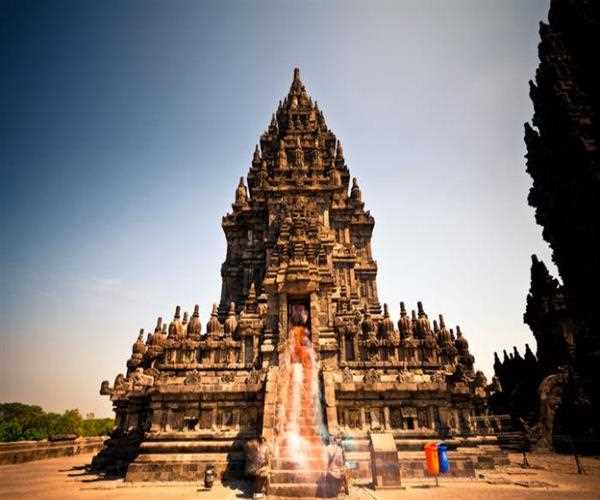
07-Jul-2022
Indian temples must be freed from Government control
The Indian State is the inheritor and trustee of our ancient civilization; the preambular exhortation of 'unity and integrity of the Nation' has a civilizational connotation of deep civilizational ties. India is simply the new name for our country Bharat, which is the homeland of our millennia-old civilization and gave birth to four major religions: Hinduism, Jainism, Buddhism, and Sikhism. So, long before they came together to draught the Constitution, they were aware of India as a civilizational nation, whose unity and integrity were essentially informed by Sanatana Dharma. Therefore, the Constitution had a strong moral obligation to preserve our old civilization and its principles in order to reintegrate our country and its citizens. Because without those, there won't be an 'India' in India because a country is more than just a physical region.
India's temple management problem is a complex one. However, disparate groups of individuals have persistently argued for the freedom of the temple. In the Bharatiya Janata Party-ruled state of Karnataka, where Chief Minister Basavaraj Bommai declared that the government would draught a new Bill to 'free' temples from administrative oversight, there now appears to be some movement.
Hindu temples have historically been governed by a variety of regulations, sometimes all at once. About five separate Acts, including the notorious Madras Hindu Religious and Charitable Endowments Act, 1951, regulate temples in Karnataka. The Karnataka Hindu Religious Institutions and Charitable Endowments Act (HRCE Act), which is the only statute that regulates all of the state's temples, was first established in 1997. The Act developed a multi-tiered governance structure under the excuse that temples needed 'proper management.'
The network of temples is presently overseen by the Dharmika Parishats at the state and district levels, and each temple has it's own 'Committee of Management' that was primarily constituted by the government administration.
As with churches and mosques for Christianity and Islam, temples and matts are the breath and soul of Hinduism. The institutional ability for self-correction and self-defense, the maintenance of the priestly class, artists, and a variety of service occupations and crafts have historically been funded by the recurring revenue produced by the temples and matts. In terms of education, hospitals, orphanages, and senior living facilities, they assisted in the natural growth of religious leadership and resource capability.
By definition, a secular state cannot oversee and regulate religious institutions, much alone those that practice a single religion. All religions, regardless of majority or minority, are granted the fundamental right to form and maintain institutions for religious and philanthropic purposes, to manage their own affairs, and to own, acquire, and govern their own property under Article 26 of the Constitution.
Hindu temples continue to be controlled and frequently seized by state governments in spite of constitutional provisions, whereas mosques and churches are permitted to be exclusively managed by the respective communities despite the fact that Article 26 grants the right to all sections of citizens equally.
Additionally, the government's authority over temples harms Hindus in two ways: first, they no longer have control over them because of this, and second, as a result of this control, temples are now considered to be a component of 'the State' under Article 12 of the Constitution. As a result, the age-old religious festivals, rituals, and traditions are questioned and tampered with unfairly and selectively.
Sabarimala is a well-known example. Part-III of the Constitution would not have applied to the Sabarimala temple if it had not been governed by the government, and there would not have been judicial intervention in Sabarimala's long-standing religious customs and practices.
Around 34,500 of the 1,80,000 temples in Karnataka are under state control. The HRCE Act's Sections 23 and 25 grant the government the arbitrary authority to regulate any temple, while Section 25 empowers a management committee to oversee any temple. We need to consider the bigger effects of temple freedom in addition to the overly bureaucratized temple system and the obviously possible squandering of cash.
Evidently, the 'majority' Hindus in India treat minorities no differently than dhimmis do in some theocratic nations because they are not allowed to own their own temples. Hinduism has been deteriorating because it lacks resources and organizations. Hindus' religious freedoms are obviously worthless, and governments are free to violate them whenever they see fit. So much for the majority of Hindus having freedom of religion.
Hindu temples and their properties should not be taken over and managed by a secular government. It is past time that the government released all Hindu temples to be controlled by Hindu society democratically and without government influence, just as Christians, Muslims, and Sikhs run their own places of worship without government intrusion. A potential democratic model for the management of Hindu temples might be the Sikh gurudwara model with the necessary changes.
The division of Hindus by sect, ethnicity, and language has allowed for centuries-long deception of Hindus. Since they never stop fighting, everyone continues to abuse the oldest religion. By passing a law allowing for their democratic management by Hindu society free from government influence, all Hindu temples and religious institutions should be liberated from governmental control. We are glad to help the government in this endeavor.

Student
current post-graduate student at christ university and an aspiring content writer with experience in working on online content creation and research..
Join Our Newsletter
Subscribe to our newsletter to receive emails about new views posts, releases and updates.
Copyright 2010 - 2026 MindStick Software Pvt. Ltd. All Rights Reserved Privacy Policy | Terms & Conditions | Cookie Policy